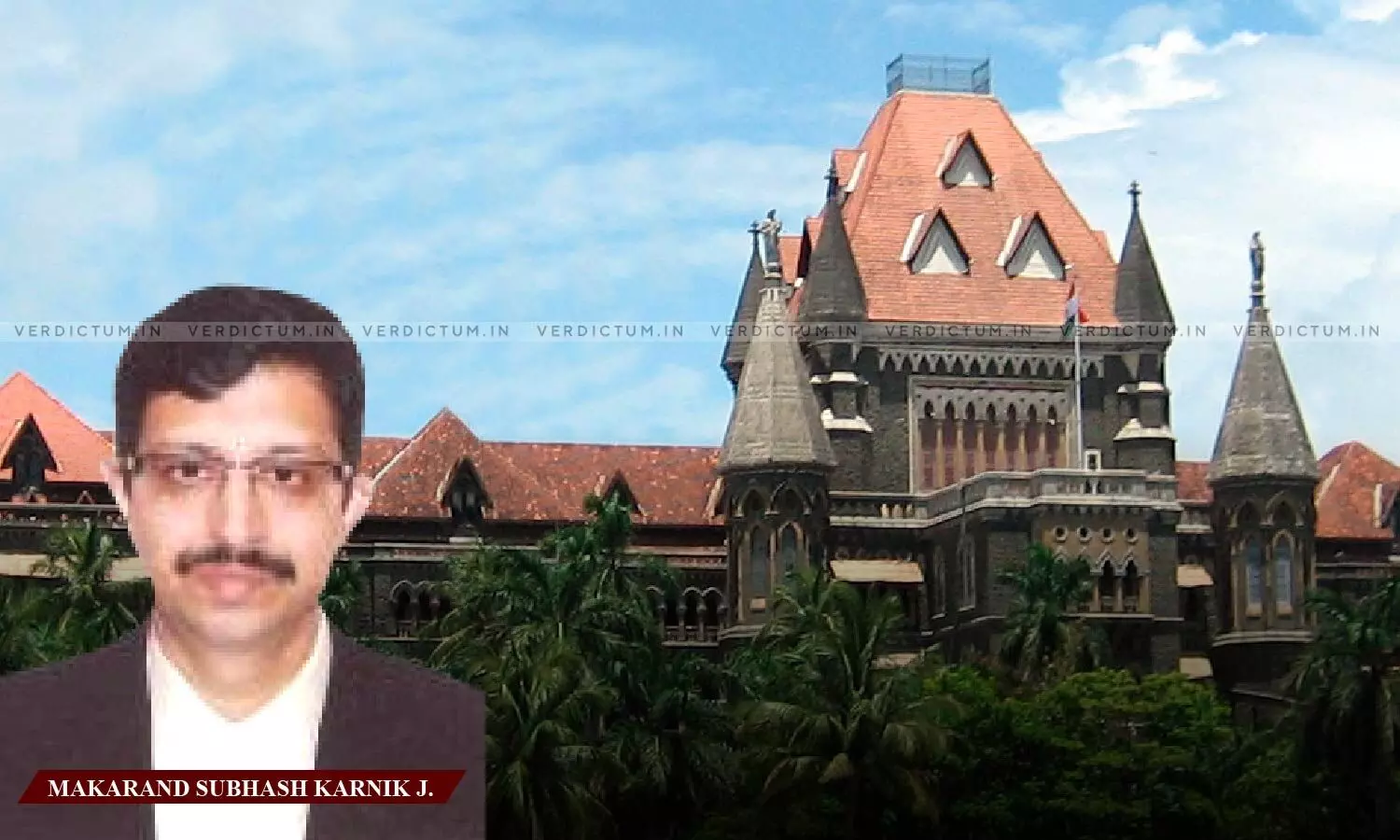
NDPS Act| Accused Would Not Become Entitled To Bail Merely Because Samples Sent For Forensic Analysis Were Not Drawn In Front Of Magistrate - Bombay HC
 |
|A Bombay High Court Bench of Justice MS Karnik has clarified that an accused under the NDPS Act would not become entitled to bail simply because samples sent for forensic analysis were not drawn in front of a magistrate.
In that context, it was said that, "the samples have been drawn, not in the presence of Magistrate and the goods have been destroyed with the permission of the Magistrate. In such a situation also, all that can happen is with the prosecution cannot avail of the deeming fiction provided in Sub-section (4) of Section 52A of the NDPS Act. This, however, does not mean that the prosecution cannot establish the charges against the accused through the means of other evidence available with it. For example, if the process of taking samples may not be in the presence of the Magistrate, but is shown to be properly followed with the aid of the support of the panch witnesses which the court finds believable and reliable, I do not see how the prosecution case would be destroyed totally."
Counsel Mithilesh Mishr appeared for the applicant, while APP Rutuja Ambekar appeared for the State.
In this case, on September 17, 2021, the Ghatkopar Anti-Narcotics Cell received confidential information regarding an individual who was suspected of carrying illegal drugs near the public toilet on the Ghatkopar Mankhurd link road. Subsequently, the police apprehended a man named Mukesh Chaudhari at the specified location. Following his apprehension, a search was conducted, resulting in the discovery of 200 bottles of cough syrup containing Chlorpheniramine Maleate and Codeine Phosphate. Each 5 ml of this syrup was labeled to contain 10 mg of Codeine Phosphate.
Later, the accused, Mukesh Chaudhari, disclosed the presence of a substantial quantity of the same cough syrup concealed in a shop located in Barfpada, Virar East, Palghar. This information led to the recovery of an additional 7700 bottles of similar cough syrup from the shop.
Consequently, the applicant, Mukesh Chaudhari, was arrested and charged with offenses under sections 8(c) (related to the possession of contraband substances) and 22(c) (related to the punishment for the possession of a commercial quantity of contraband substances) of the NDPS Act. As a result of these charges, the applicant filed a bail application seeking release from custody.
The High Court observed that it was undoubtedly true that when the investigating agency has not followed the procedure under Section 52A of the NDPS Act, the deeming fiction of photographs, samples etc., being treated as primary evidence as provided under Section 52A(4) would not be available.
The Court also clarified that if the seized substance is still not destroyed and is available in the custody of the investigating agency, there is nothing to stop the said agency from following the full gamut of the procedure provided under Section 52A before destroying or disposing off the goods and then relying on the deeming fiction contained in Section 52A(4) of the NDPS Act.
In that vein, the Court clarified that the question of what evidence is brought on record and how such evidence is to be evaluated cannot be the sole consideration at the stage when the Court is concerned with the question of granting or refusing bail. It was further said that, "It may be one of the relevant considerations but cannot be the sole consideration on the basis of which the moment it is shown that the procedure under Section 52A of the NDPS Act is not followed, the accused automatically becomes entitled to bail as a matter of right. The rigors of Section 37 of the NDPS Act would continue to apply. Only when the bail court is satisfied that reasonable grounds of believing that the accused is not guilty of the offence and that he is not likely to commit any offence while on bail, the bail would be granted. I, therefore, do not find any merit in the submission of learned counsel for the applicant that in the present case non-compliance of Section 52A would entitle the applicant to bail."
In light of the same, finding no merit in the submissions, the application was rejected.
Cause Title: Mukesh Rajaram Chaudhari vs The State of Maharashtra
Click here to read/download the Judgment